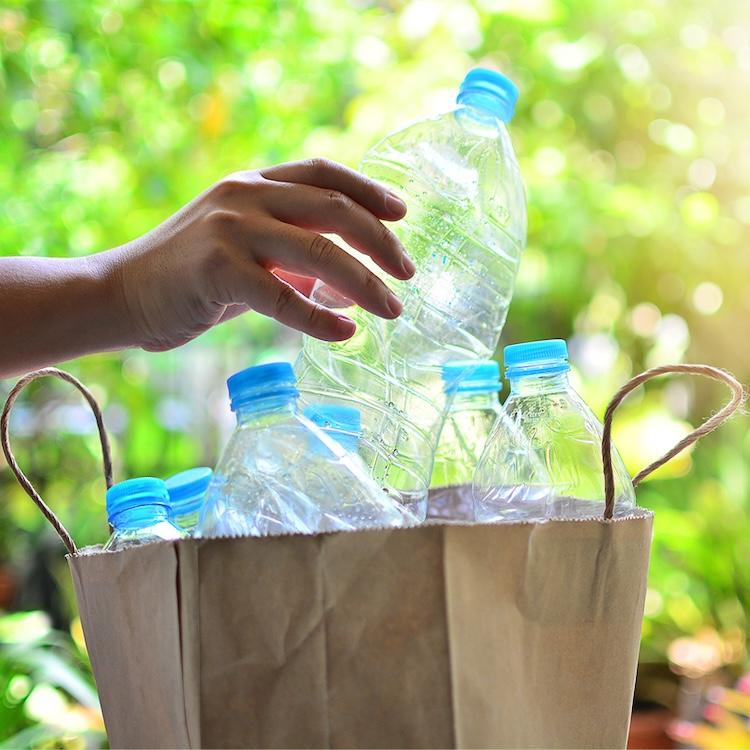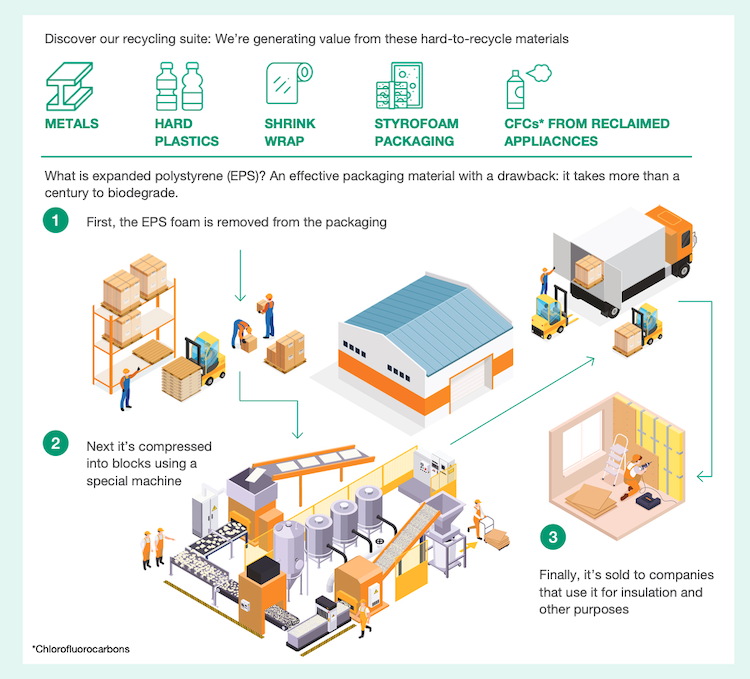Circularity in Practice: How The Home Depot Is Turning Waste Into Opportunity
Originally published on Built From Scratch
In a circular economy, nothing is wasted. Materials that would be typically thrown away can be reimagined or reinvented into something useful. Everyday items like plastic pots can enjoy a second life as hanging baskets, while plastic wrap can be transformed into deck boards, and expanded polystyrene (EPS) foam can be revived as insulation.
The benefits of product circularity touch on every part of a product’s lifespan. Recycled materials in product design lower the amount of natural resources used in manufacturing. Durable, reusable products lower the amount of waste sent to landfills. In addition, product circularity appeals to customers who want to do their part to help the planet.
Discover our recycling suite: We're generating value from these hard-to-recycle materials:
- METALS
- HARD PLASTICS
- SHRINK WRAP
- STYROFOAM PACKAGING
- CFC'S* FROM RECLAIMED APPLIANCES
What is expanded polystyrene (EPS)? An effective packaging material with a drawback: it takes more than a century to biodegrade.
- First, the EPS foam is removed from the packaging.
- Next it's compressed into blocks using a special machine.
- Finally, it's sold to companies that use it for insulation and other purposes.
Between our market delivery operations and reverse logistic centers, we now recycle not only metal, hard plastics and shrink wrap, but also EPS packaging and the chlorofluorocarbons (CFCs) from reclaimed appliances. Learn more about product circularity in the latest ESG Report.
Keep up with all the latest Home Depot news! Subscribe to our bi-weekly news update and get the top Built from Scratch stories delivered straight to your inbox.
*Chlorofluorocarbons



